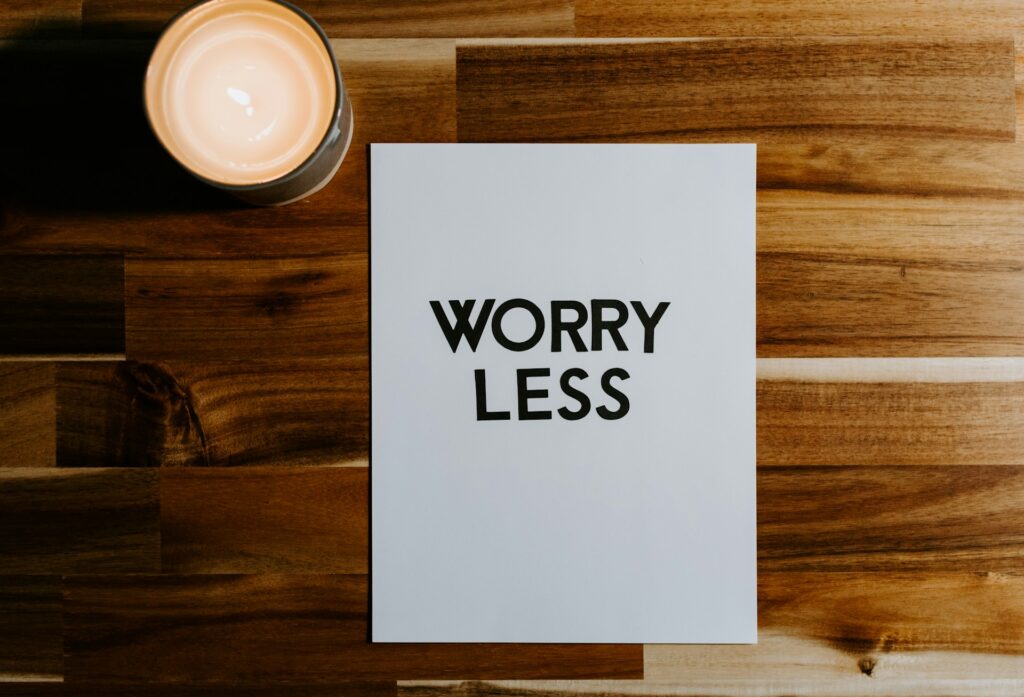
Anxiety can feel overwhelming, but self-improvement strategies can help you manage and alleviate its impact. By adopting practices that nurture your mental well-being, you can create a sense of calm and build resilience. This post explores actionable steps for reducing anxiety and fostering self-growth.
Understanding Anxiety
Anxiety often arises from:
- Uncertainty: Fear of the unknown or lack of control.
- Overthinking: Dwelling on negative possibilities.
- Unrealistic expectations: Setting goals that are too high or rigid.
- Stress overload: Struggling to juggle responsibilities and demands.
The key to managing anxiety lies in building healthy habits and thought patterns.
Strategies for Anxiety Relief and Self-Improvement
1. Practice Mindful Breathing
- Focus on your breath to anchor yourself in the present moment.
- Try the 4-7-8 technique: Inhale for 4 seconds, hold for 7 seconds, and exhale for 8 seconds.
- Use this method whenever you feel overwhelmed to quickly reduce stress.
2. Establish a Consistent Routine
- Create a daily schedule to provide structure and predictability.
- Prioritize activities that support your mental health, such as exercise, meditation, and journaling.
- Consistency helps reduce the uncertainty that fuels anxiety.
3. Challenge Negative Thoughts
- Identify anxious thoughts and question their validity.
- Replace “What if everything goes wrong?” with “What if it turns out better than I expect?”
- Reframing negative thinking patterns fosters a more positive outlook.
4. Incorporate Regular Exercise
- Physical activity releases endorphins, which improve mood and reduce stress.
- Choose activities you enjoy, such as walking, dancing, or yoga.
- Aim for at least 30 minutes of exercise most days of the week.
5. Practice Gratitude Daily
- Write down three things you’re grateful for each day.
- Focusing on the positive aspects of life can shift your perspective and reduce anxiety.
- Gratitude journaling also promotes a sense of fulfillment.
6. Limit Exposure to Triggers
- Identify people, situations, or environments that increase your anxiety.
- Set boundaries to protect your mental well-being.
- Take breaks from social media or the news if they contribute to stress.
7. Develop Relaxation Techniques
- Experiment with practices such as progressive muscle relaxation, visualization, or aromatherapy.
- Dedicate time each day to unwind and recharge.
- Relaxation techniques help calm your mind and body.
8. Focus on Self-Care
- Prioritize activities that bring you joy and relaxation.
- Ensure you get enough sleep, eat nutritious meals, and stay hydrated.
- Self-care is essential for managing anxiety and boosting your overall well-being.
9. Break Tasks into Smaller Steps
- Overwhelm can worsen anxiety. Divide large tasks into smaller, manageable steps.
- Celebrate each small accomplishment to build momentum.
- Taking things one step at a time reduces pressure.
10. Seek Support When Needed
- Reach out to friends, family, or support groups to share your feelings.
- Consider professional help, such as therapy or counseling, to explore deeper anxiety-relief strategies.
- You don’t have to face anxiety alone.
Affirmations for Anxiety Relief
- “I am in control of my thoughts and emotions.”
- “I am capable of handling whatever comes my way.”
- “I choose peace and calm in this moment.”
- “I release the things I cannot control.”
Final Thoughts
Self-improvement and anxiety relief go hand in hand. By adopting these strategies, you can empower yourself to navigate life’s challenges with greater ease and confidence. Remember, progress takes time, so be patient and kind to yourself as you grow.
What self-improvement techniques have helped you manage anxiety? Share your tips in the comments below!
Leave a Reply